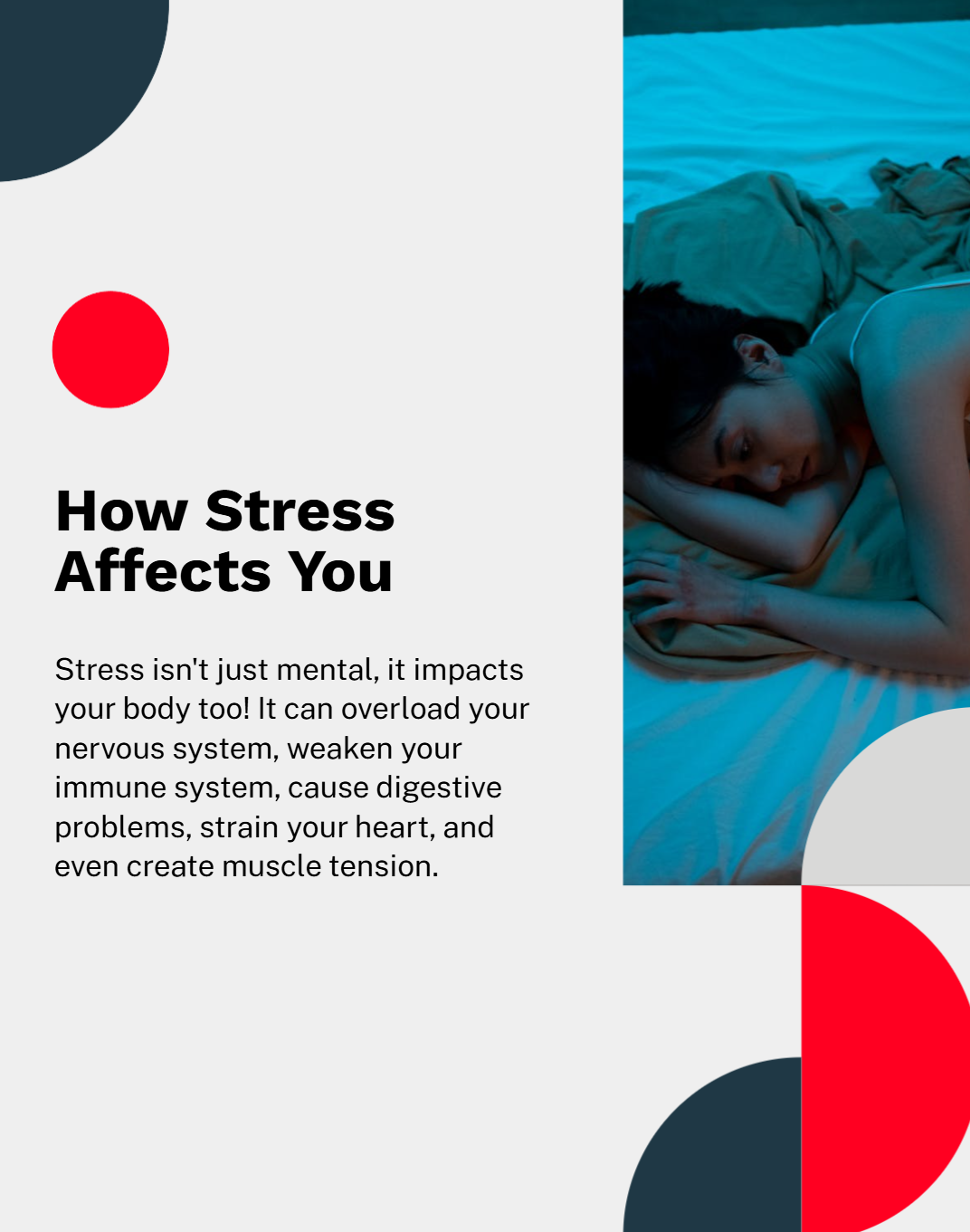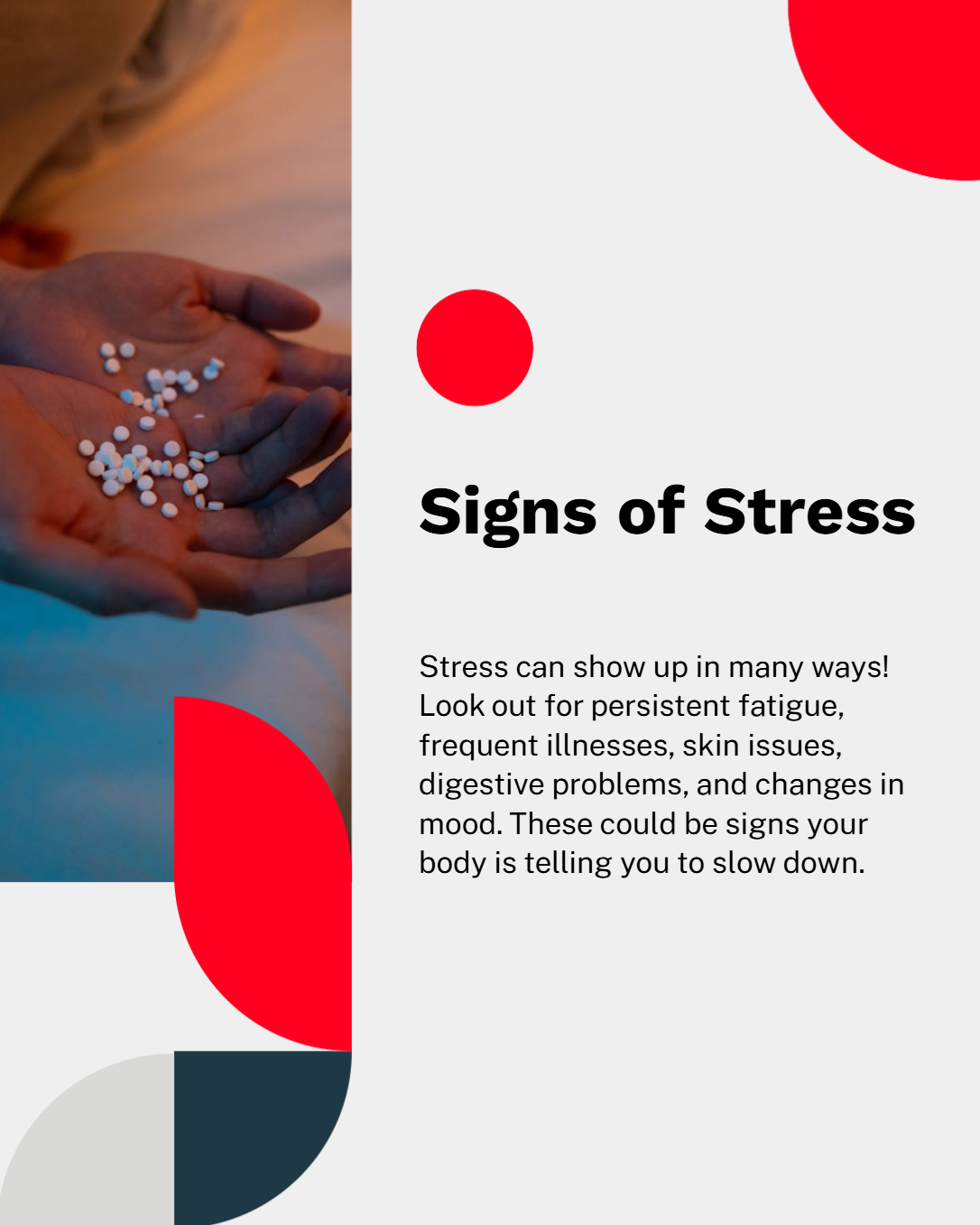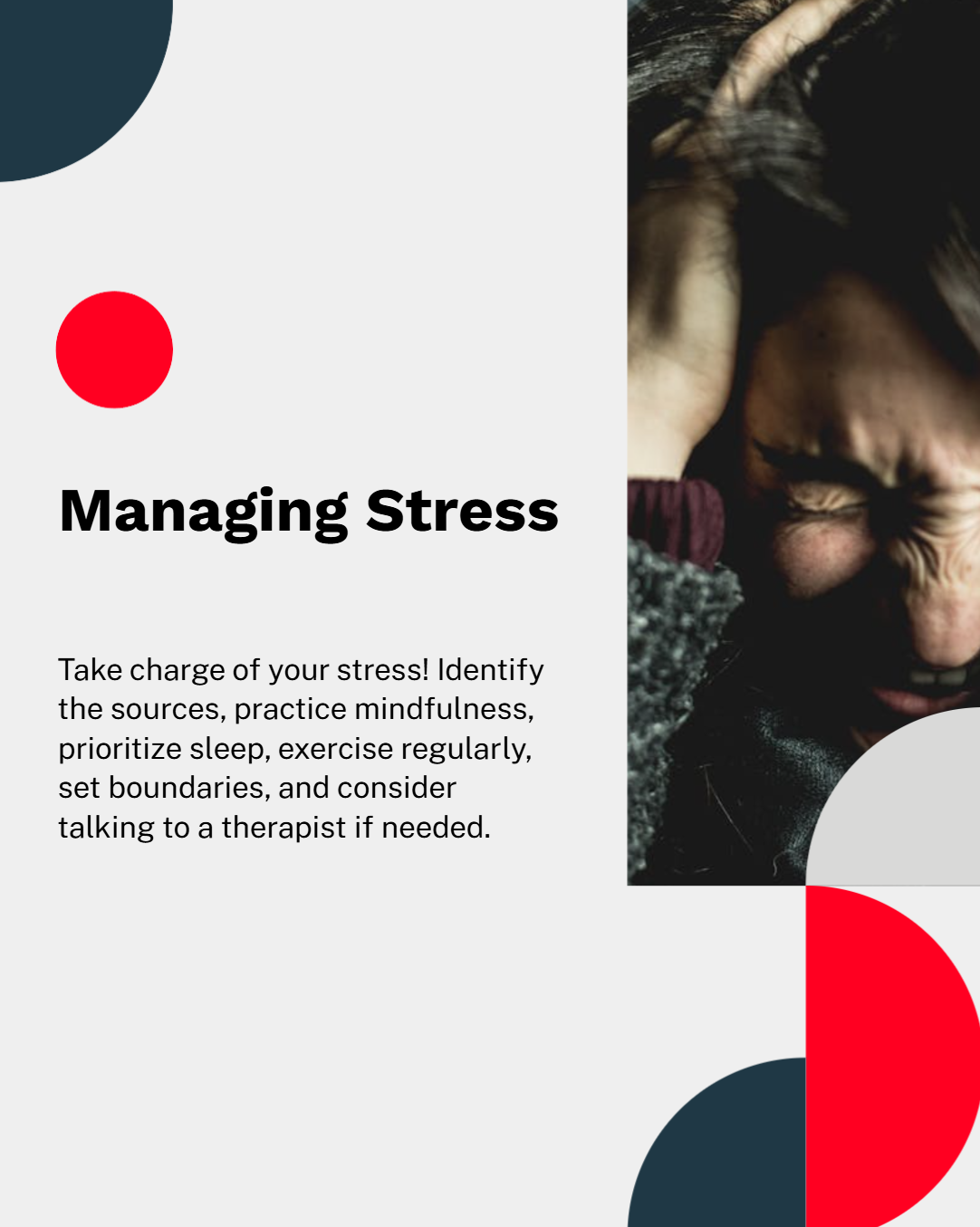Stress is a natural part of life, but when it lingers or becomes overwhelming, it can take a toll on your physical and mental health. Many people brush off the symptoms of stress, attributing them to a busy schedule or lack of sleep, but chronic stress can silently wreak havoc on your body. Let’s explore how stress impacts your health, how to recognize the warning signs, and actionable steps to regain control of your well-being.
Stress is your body’s response to a perceived threat or challenge. While short-term stress can be beneficial, helping you react quickly in emergencies, long-term stress keeps your body in a constant state of "fight or flight," which can lead to serious health problems.

Stress doesn’t just stay in your mind—it manifests in physical ways too. Here’s a breakdown of how it can impact various systems in your body:
When you’re stressed, your brain signals the release of stress hormones like cortisol and adrenaline. While these are helpful in the short term, chronic activation can lead to fatigue, irritability, and even memory problems.
High levels of stress suppress your immune function, making you more susceptible to infections like colds and flu. It can also slow down your body’s ability to heal wounds.
Stress can interfere with digestion, leading to problems like stomach aches, nausea, diarrhea, or even irritable bowel syndrome (IBS).
Prolonged stress raises your blood pressure and heart rate, increasing the risk of heart disease, heart attacks, and strokes.
Stress often causes tightness in the neck, shoulders, and back. Chronic tension can lead to headaches and long-term pain.

Are you always tired despite getting enough sleep? Chronic stress can disrupt your sleep cycle and drain your energy.
If you find yourself catching every bug that goes around, stress may be weakening your immune system.
Stress often shows up on your skin in the form of acne, rashes, or eczema flare-ups.
Stomach cramps, bloating, and irregular bowel movements can all be signs of stress.
Irritability, anxiety, and depression are common emotional symptoms tied to prolonged stress.
Researchers have found that stress triggers the release of inflammatory chemicals in your body. These chemicals, like cytokines, can cause or worsen chronic illnesses, such as diabetes, arthritis, and autoimmune diseases. Stress also disrupts hormonal balance, affecting your appetite, metabolism, and sleep quality.
Track your symptoms and any patterns that emerge. For instance, do your headaches coincide with work deadlines?
Look at your sleep, diet, and activity levels. Are you skipping meals or staying up late due to stress?
Notice if you’re more irritable or anxious than usual. Emotional changes often signal excessive stress.
Ignoring stress can lead to long-term health complications, including:

Take time to pinpoint the sources of your stress. Is it work, family, finances, or something else?
Techniques like meditation, deep breathing, and yoga can help calm your mind and body.
Aim for 7-9 hours of quality sleep each night to give your body the rest it needs.
Regular exercise can reduce stress hormones and boost endorphins, the body’s feel-good chemicals.
Learn to say no when your plate is already full. Setting limits protects your mental health.
If stress feels unmanageable, consider talking to a therapist or counselor.
A nutrient-rich diet supports your body during stressful times. Include whole grains, fruits, vegetables, and lean proteins.
Strong relationships provide emotional support and help you cope better with stress.
Organize your tasks and set realistic goals to avoid feeling overwhelmed.
Short breaks during work can prevent burnout and refresh your focus.
If you’re experiencing severe symptoms like chronic pain, high blood pressure, or mental health challenges, it’s time to consult a healthcare professional. They can help you rule out other conditions and create a plan to manage stress effectively.
Stress is an unavoidable part of life, but it doesn’t have to make you sick. By recognizing the signs, addressing the causes, and adopting healthy habits, you can protect your body and mind from the negative effects of stress. Remember, small changes in your daily routine can lead to big improvements in your overall well-being.
Yes, stress can lead to weight gain or loss by affecting your appetite and metabolism. Some people overeat when stressed, while others may lose their appetite.
Stress can disrupt your sleep by causing racing thoughts or increasing levels of cortisol, a hormone that keeps you awake.
Yes, people with a history of chronic illness, poor coping skills, or a lack of social support are more vulnerable to stress-related health issues.
Absolutely! Regular physical activity reduces stress hormones and increases endorphins, improving your mood and resilience to stress.
Recovery time varies, but with consistent self-care and professional guidance, most people see improvements within weeks to months.
 14.12.2024
14.12.2024